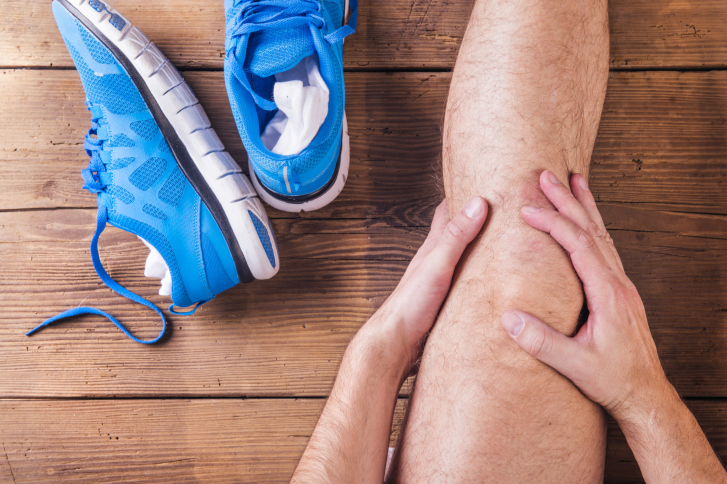Adjust your mindset to speed up injury recovery
Staying positive while you're injured can help you get back to running faster

Most people will have a negative psychological response to an injury, and this is often even stronger for athletes, since their sport is such an important part of their lives. An injury can bring out a range of emotions, including frustration, anger, boredom, depression, fear, anxiety, confusion and loneliness. These emotions not only feel bad, but they can affect the individual’s adherence to their rehabilitation program, and even their desire to return to their sport. For this reason, just like mental resilience and toughness are important in workouts and races, they’re also important when you’re on the sidelines recovering from an injury. Your mind is a powerful tool, so the next time you’re injured, use these tips to help think your way to recovery.

RELATED: The eight emotional stages of injury
Accept your new (temporary) reality
Before your injury, every Tuesday night was spent logging kilometres with your run crew, and every Sunday was an early morning long run followed by a hearty brunch. Now that you’re injured, these activities will have to change, but it is important to keep in mind that these changes are only temporary. In the meantime, the best thing you can do is accept your new reality, and focus on the positives — like being able to stay up late on a Saturday night because you don’t have to set an alarm for Sunday morning. Injuries are usually our body’s way of telling us that we needed a break, so think of your time off as a chance for your body to rest so that when you do get back to training, you’ll be refreshed and ready to run better than you did before.
Use your extra time wisely
Without running, you’ve got a lot of extra time in your week to fill. One of the best things an injured runner can do is to dedicate at least a portion of that time to rehabbing the injury, since that time was already cleared on your schedule anyway. Use whatever time you have left over to do something that rejuvenates you or helps take your mind off your injury, like reading a good book, going for a long walk (if your injury allows it), doing some yoga or meditation, or grabbing a coffee with a friend.
Don’t worry about losing fitness
One of the biggest worries on a runner’s mind when they’re injured is how much fitness they’ll lose during their time off. As runners, we spend a lot of time patiently building up our fitness, so the thought of losing any of it can be terrifying, especially when you have no idea how long you’ll be on the sidelines. This is a valid concern, but we’re here to tell you not to worry about it. Yes, you may lose a little bit of ground, but when you return to running you’ll likely make it back quicker than you think.
Eat well
Your diet has a significant effect on your mood and your mental health, so when you’re injured it’s important to continue to eat a healthy diet as much as possible. Eating nutrient-dense, anti-inflammatory foods can also help speed your recovery process, so use your extra time to prep some healthy meals and fast-track your way to being injury-free.

Adjust your goals
Maybe before your injury your goal was to set a new PB in the 5K, or you were training for your first half-marathon. It’s disappointing when you have to put a pause on your goals, but remember, you’ll get back to them eventually. For now, set new goals, such as committing to doing your rehab exercises every day, or getting eight hours of sleep every night. Taking your competitive energy that you normally put into your running and focussing it on recovery will help you get better faster.
Surround yourself with friends and family
In many cases, injured runners tend to withdraw from their social circles while they’re out of the game, especially when their social lives were heavily centred around running. This, however, can make depressive feelings even worse, which can slow down the recovery process. As much as possible, make an effort to stay connected with your friends and family while you’re injured. Chances are, many of your running friends have been in your spot before, and will be eager to support you through your recovery. They can’t support you if you isolate yourself from them, so reach out when you need someone to talk to.
RELATED: Dayna Pidhoresky’s cycling workouts for injured runners


